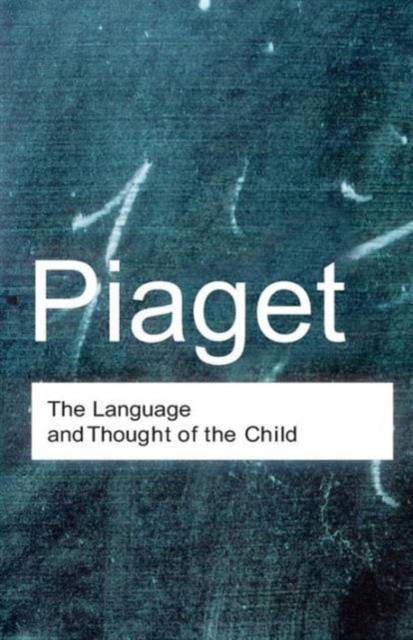
Door een staking bij bpost kan je online bestelling op dit moment iets langer onderweg zijn dan voorzien. Dringend iets nodig? Onze winkels ontvangen jou met open armen!
- Afhalen na 1 uur in een winkel met voorraad
- Gratis thuislevering in België vanaf € 30
- Ruim aanbod met 7 miljoen producten
Door een staking bij bpost kan je online bestelling op dit moment iets langer onderweg zijn dan voorzien. Dringend iets nodig? Onze winkels ontvangen jou met open armen!
- Afhalen na 1 uur in een winkel met voorraad
- Gratis thuislevering in België vanaf € 30
- Ruim aanbod met 7 miljoen producten
Zoeken
€ 28,95
+ 57 punten
Uitvoering
Omschrijving
This book is for anyone who has ever wondered how a child develops language, thought, and knowledge. Before this classic appeared, little was known of the way children think. In 1923, however, Jean Piaget, the most important developmental psychologist of the twentieth century, took the psychological world by storm with The Language and Thought of the Child. Applying for the first time the insights of social psychology and psychoanalysis to the observation of children, he uncovered the ways in which a child actively constructs his or her understanding of the world through language. The book has since been a source of inspiration and guidance to generations of parents and teachers. While its conclusions remain contentious to this very day, few can deny the huge debt we owe to this pioneering work in our continuing attempts to understand the minds of the child.
Specificaties
Betrokkenen
- Auteur(s):
- Uitgeverij:
Inhoud
- Aantal bladzijden:
- 320
- Taal:
- Engels
- Reeks:
Eigenschappen
- Productcode (EAN):
- 9780415267502
- Verschijningsdatum:
- 11/10/2001
- Uitvoering:
- Paperback
- Formaat:
- Trade paperback (VS)
- Afmetingen:
- 127 mm x 197 mm
- Gewicht:
- 349 g

Alleen bij Standaard Boekhandel
+ 57 punten op je klantenkaart van Standaard Boekhandel
Beoordelingen
We publiceren alleen reviews die voldoen aan de voorwaarden voor reviews. Bekijk onze voorwaarden voor reviews.











